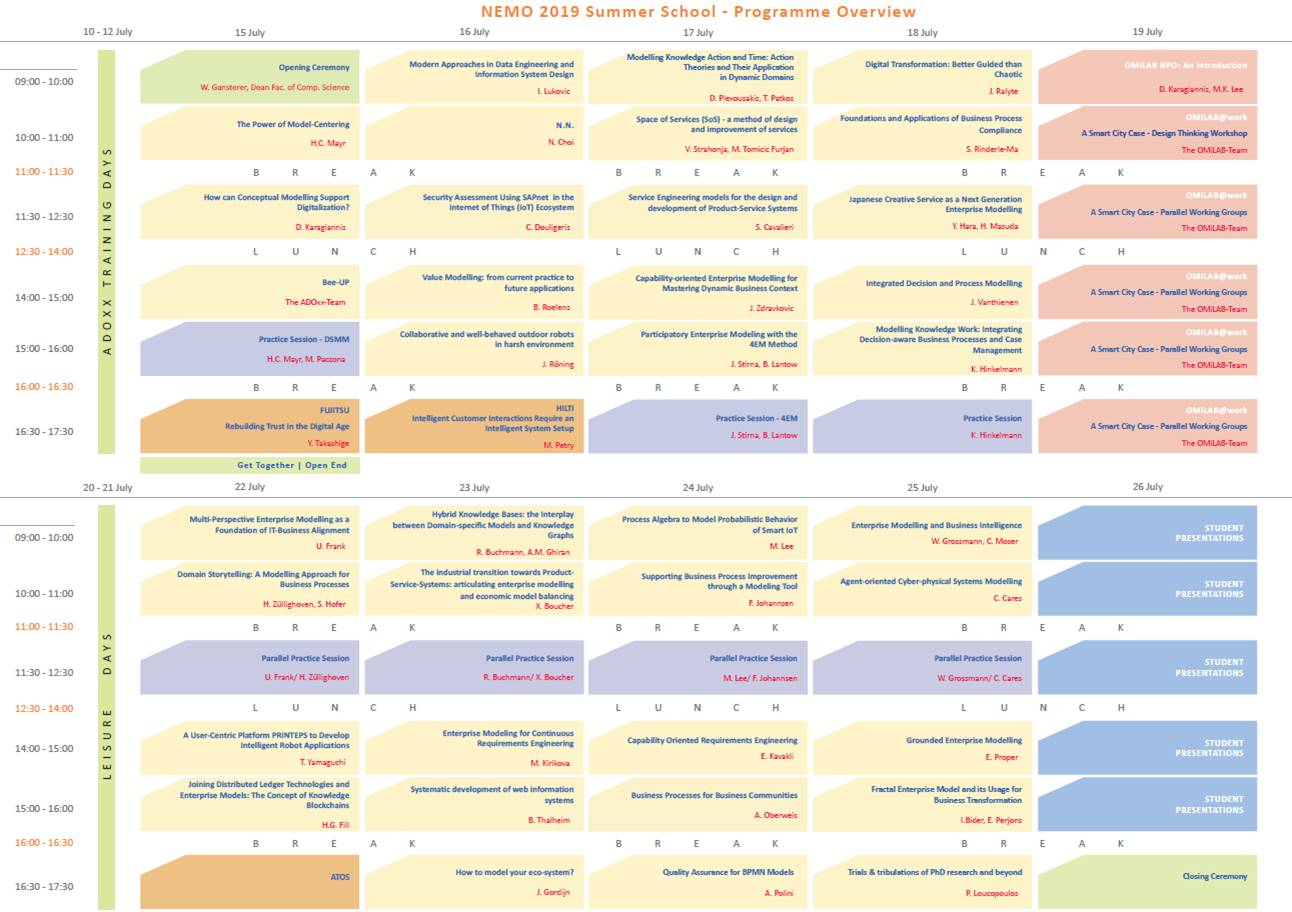
Enterprise Modelling and Business Intelligence
Prof. Dr. Wilfried Grossmann, Dr. Christoph Moser, University of Vienna, Austria
Abstract
Business Process Modelling (BPM) and Business Intelligence (BI) are two important areas in business informatics, which are treated, often rather separated from each other. Looking at the literature and the activities in the two areas shows that process modelling takes a look at the business from a more production and organizational oriented view, whereas business intelligence activities emphasize more the role of the customer in the business process. In this lecture we want to take a unified view onto these two approaches and show how BPM and BI support each other. For demonstration we use the activities of data understanding and data provisioning which are at the beginning of any BI activity. Due to the abundance of data on the Internet integration of traditional data sources and big data is a challenging task. We present a process model for data integration and show how this model can be realized using the ADOxx platform. The basic idea of the model is simultaneous processing of the data workflow and the associated workflow of the metadata which describe the data processing activities. Such a model supports better understanding of the data and extends traditional methods for accessing data quality.
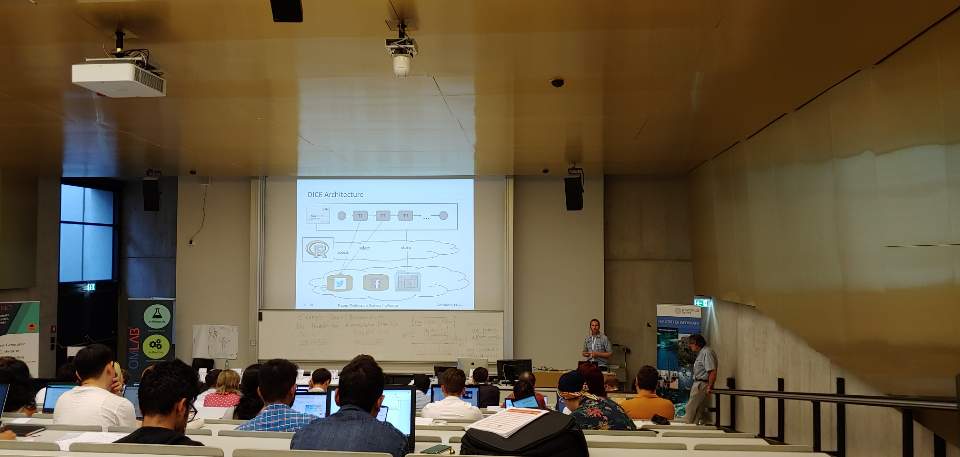
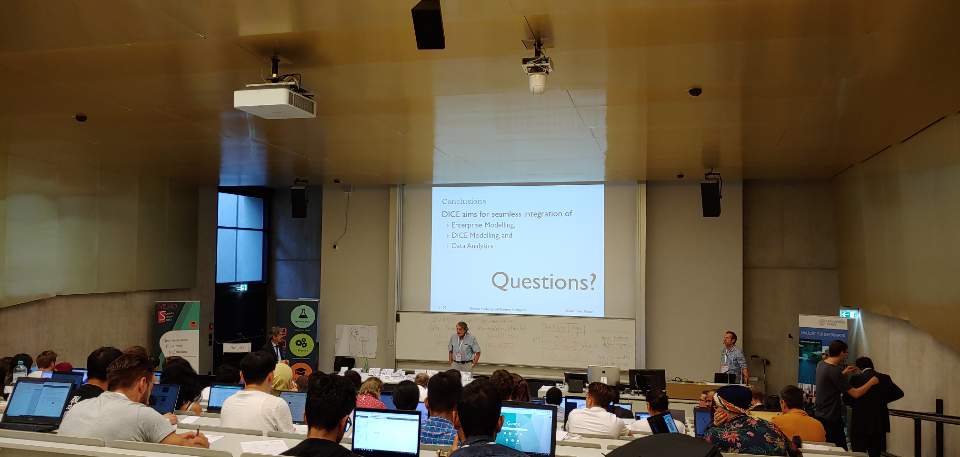
Agent-oriented Cyber-physical Systems Modelling
Prof. Dr. Carlos Cares,University of La Frontera, Chile
Abstract
The low cost of IoT devices such as sensors and micro-controllers has enabled Industry 4.0. This mainstream contains not only industrial applications but also other ones perceived as revolutions, which has been summarized as smart-everything, internet-of-everything and, of course, the smart city revolution. Cyber-physical systems (CPS) are the integration of distributed hardware controlled by distributed software with the aim of controlling physical processes. Therefore they should have both software-hardware devices for perceiving real world variables and software-hardware devices for acting in the real world. In this NEMO-2019' lecture, the current state of modelling techniques for CPS and how agent-oriented modelling languages provide most of the required features for CPS modelling will be presented. In the practice part of the lecture, a set of different agent-oriented patterns are shown and the professor will guide the design of your own CPS by using these patterns.
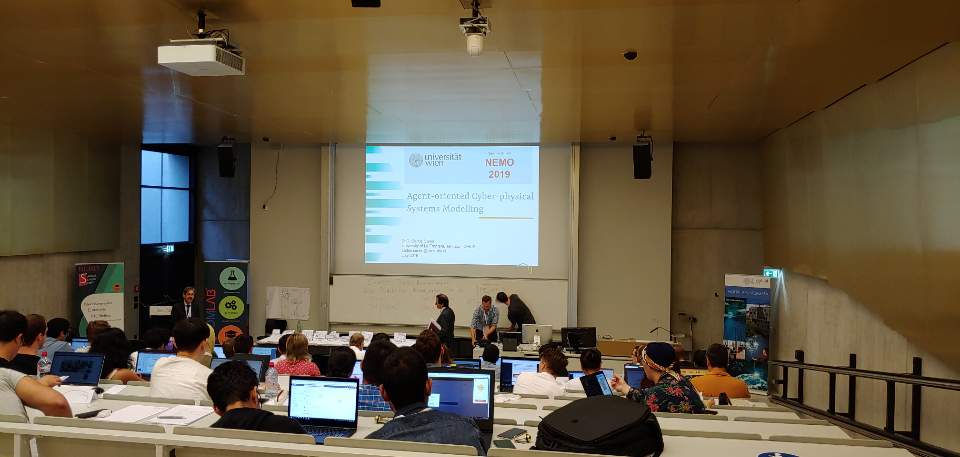
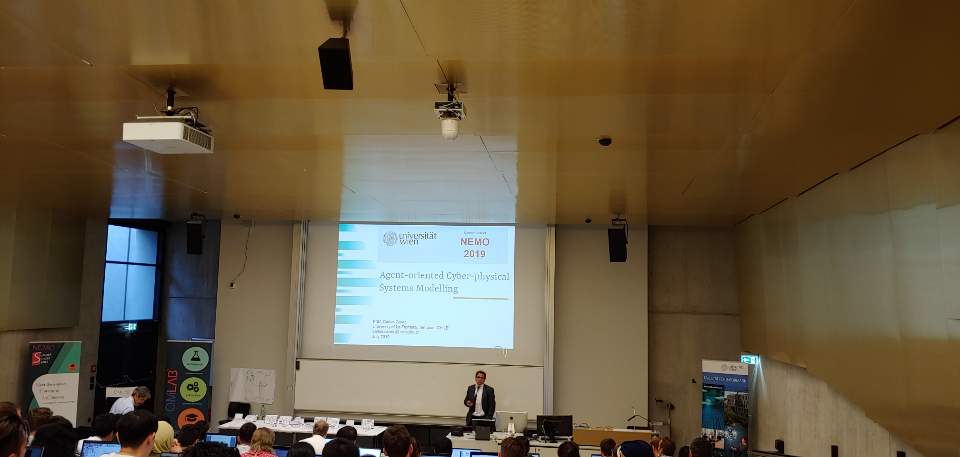
Grounded Enterprise Modelling
Prof. Dr. Erik Proper, LIST, Luxembourg
Abstract
Enterprise models are ussed to represent different aspects of /related-to an organisation / enterprise. Such enterprise models typically take the form of conceptual models expressed in terms of a more specialised, purpose specific, modelling language. In general, such modelling languages, force modellers to “reduce” the models to mere boxes-and-lines diagrams, where it is left to the names in / on the boxes to provide a linkage to semantically richness, and nuances, of the domain being modelled. In this lecture, we discuss the strategy to ground enterprise models in purpose / domain specific languages on top of a conceptual model expressed in a more generic domain modelling language, where the latter allows modellers to include richer verbalisations of the concepts and their relationships. This will be illustrated in terms of example models in the ArchiMate language, while grounding these on models expressed in the well known fact-based modelling language ORM.
Fractal Enterprise Model and its Usage for Business Transformation
Prof. Dr. Ilia Bider, Prof. Dr. Erik Perjons, Stockholm University, Sweden
Abstract
The lecture introduces a new type of enterprise models called Fractal Enterprise Models (FEM), with accompanying methodological support for their design. FEM shows interconnections between the business processes in an enterprise by connecting them to the assets they use and manage. Assets considered in the model could be tangible (buildings, heavy machinery, etc.) and intangible (employees, business process definitions, etc.). A FEM model is built by using two types of patterns called archetypes: a process-assets archetype that connects a process with assets used in it, and an asset-processes archetype that connects an asset with processes aimed to manage this asset (e.g., hiring people, or servicing machinery). Alternating these patterns creates a fractal structure that makes relationships between various parts of the enterprise explicit. There are several areas where FEM can be used in practice , e.g. for planning and completing organizational change, including a radical one, such as business model transformation. The lecture will present practical examples of FEM usage.
PhD Research and Beyond within EIS: Trials and Tribulation
Prof. Dr. Pericles Loucopoulos, Manchester Business University, UK
Abstract
Research has often been regarded as a “wicked problem”, an activity of informed curiosity when researchers state what they are doing when they don’t really know what they are doing. It is a process which is guided by a particular methodology the choice of which is based on the contextual setting of the research topic (the challenges) as well as the motivation for a solution (the deliverables). In this lecture, we will examine issues involved in research with particular emphasis on research in the field of Enterprise Information Systems (EIS). We will examine the issues underpinning the EIS domain, the emergence of research needs from digitisation, to interpretation and more recently to transformation of enterprises. Given this context, we will explore different research methodologies that may be deployed, such as those of Design Science Research, Action Research, Case Study, Survey Design, Mixed Methods and Qualitative Methods, each one of which is suited to different motivational characteristics of the underlying research goals. We will also explore the social dimension of research, including issues encountered by researchers in settings involving communities within their specific research environment as well as other related communities (e.g. the NEMO Summer School) and the broader EIS community. Branching out from a close research environment by exploiting gained experiences, towards collaborative initiatives, competing for research funding and helping the next generation of researchers will also be addressed in this lecture.


